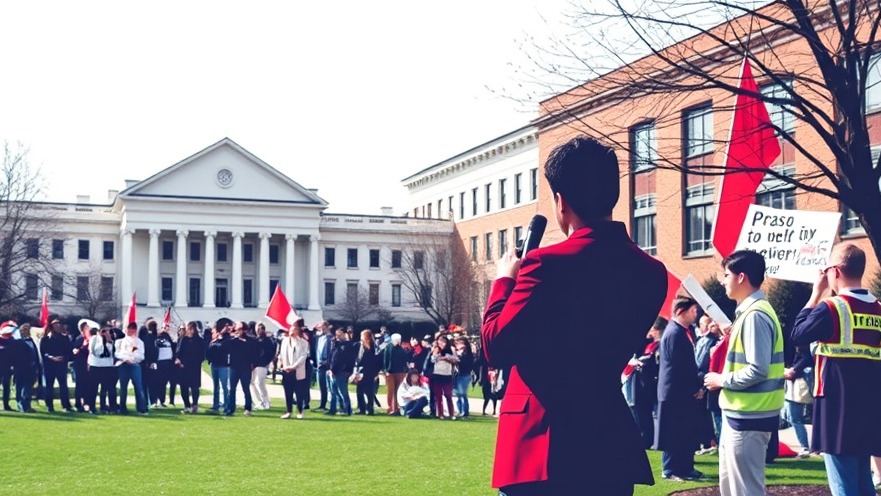
Exploring the Impact of Free Speech on College Campuses
In light of recent events, particularly the tragic killing of conservative political activist Charlie Kirk, Texas lawmakers are turning their attention to the critical issue of free speech on college campuses. This development signals a shift towards promoting open dialogue and addressing the challenges that arise when differing ideologies clash in educational environments.
The Legislative Response
Texas legislative committees are preparing to study freedom of speech issues related to college campuses. This comes amidst increasing concerns about the suppression of conservative views in academic settings. Legislators argue that universities should be bastions of free expression, where all ideas can be shared and debated openly, regardless of their political leaning. According to state officials, prioritizing the protection of free speech is essential for fostering an environment conducive to education and intellectual growth.
Current Trends in Free Speech on Campuses
Across the United States, the discussion around free speech in educational institutions is particularly heated. Incidents like disruptions of speakers and protests against certain viewpoints have led to a growing apprehension about academic freedom. Advocacy groups highlight how these tensions often inhibit honest discussion and prevent students from encountering diverse perspectives that are pivotal to their learning.
Why This Conversation Matters
Addressing the freedom of speech is crucial not just for students, but for the health of democracy itself. Young individuals are poised to inherit the responsibilities of leadership, and equipping them with debate skills is paramount. Legislators in Texas are keen on ensuring that campuses serve as arenas for civil discourse, which is essential for developing informed citizens who can engage critically in society.
Counterarguments on Campus Speech Policies
While the focus is on protecting speech, some critics argue that promoting unchallenged free speech can lead to harmful narratives that undermine marginalized groups. They advocate for prepared policies that not only promote diversity in conversation but also protect students from hate speech and harassment. Striking a balance between these opposing viewpoints will be a challenging yet necessary task for lawmakers.
Local Relevance
For Texas residents, the implications of these discussions are profound. Understanding the balance of free speech in educational settings reverberates through local communities, from Austin to Dallas and beyond. As students engage in these policies, the recognition of all voices becomes critical in shaping the next generation’s socio-political landscape.
Taking Action: What Can Individuals Do?
In light of these developments, Texans can engage with local representatives on this important issue. Attending town halls, participating in discussions around policy changes, and advocating for a balanced approach to free speech are crucial steps individuals can take to influence the direction of these discussions.
Concluding Thoughts: The Future of Speech in Texas Education
As Texas legislators embark on this journey to analyze and reform speech policies on college campuses, the community’s voice will be pivotal. Ensuring that education remains a platform for diverse perspectives while honoring the principles of free expression is a delicate dance that will require vigilance and proactive engagement from all stakeholders.
 Add Element
Add Element  Add Row
Add Row 



Write A Comment